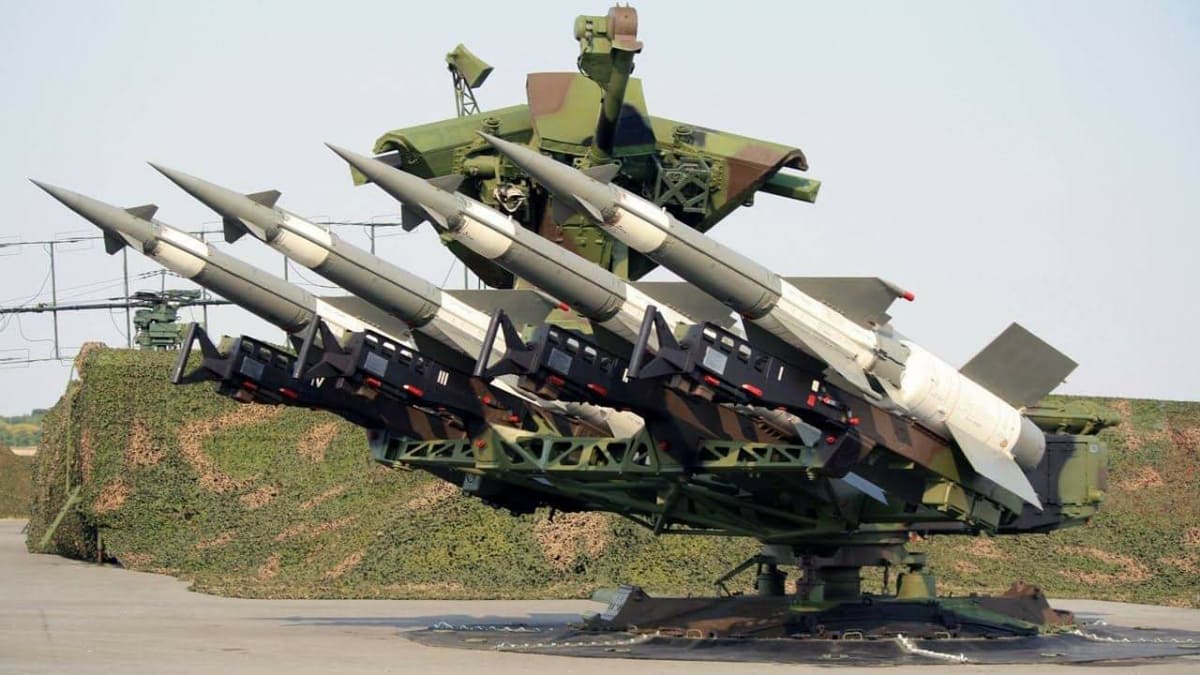New evidence suggests that an advanced Polish air defense system is now operational with Ukrainian forces, just days after Kyiv appealed to Germany to transfer Patriot missile defense systems.
Canadian Firm ‘Painfully Regrets’ Its Parts Are Used In Shahed-136 UAVs That Russia Is Using To Attack Ukraine
In a new development, a rare version of the S-125 air defense system developed in Poland was spotted in freshly released photos that have gone viral. The S-125 Neva SC is a Polish air defense system based on a Soviet-era S-125 installed on a WZT-1 tank chassis.
Before the S-125 Neva SC was spotted in Ukraine, the transfer of this variant of the air defense system was kept a secret by both sides.
Earlier, Poland had rejected Germany’s offer to arm Warsaw with the sophisticated Patriot missile defense system. At the time, Poland’s Ministry of National Defense made a pitch to transfer these advanced air defense systems to Kyiv instead, which Berlin rejected.
BREAKING:
New pictures reveal that Poland has transferred the S-125 Newa SC air defense system to Ukraine.
It can strike targets at an altitude up to 18 km and has a range of 25 km.
Neither Poland nor Ukraine had previously discussed the transfer in public.
🇵🇱🇺🇦 pic.twitter.com/xiLRZ1sorb
— Visegrád 24 (@visegrad24) December 5, 2022
The S-125 is a low-to-medium altitude, two-stage, solid-fuel SAM designed to shoot down bombers, fighter bombers, and cruise missiles. It is a well-known and popular Surface-to-Air Missile system that shot to fame after shooting down a US F-117A Nighthawk, the world’s first stealth aircraft, during the 1999 NATO invasion of Yugoslavia.
In April this year, there were speculations that a Russian Su-35 fighter jet was shot down by the S-125 air defense system deployed by Ukraine. Despite being pulled from the Russian military due to its lack of mobility, the S-125 is still used in several countries.

Ukraine reportedly reintroduced its units in late 2020, improving them to the S-125-2D Pechora standard, which provides a significantly more extended range of 40 kilometers.
In addition, EurAsian Times reported last month that several outdated S-125 air defense systems were commissioned as part of the anti-ship coastal defense system in September.
With Russia raining down missiles in Ukraine’s urban centers, the US Secretary of Defense, Lloyd Austin, emphasized air defense as a top priority for US security assistance efforts.
On December 5, Ukrainian officials reported heavy Russian missile strikes across the country, with air raid sirens blaring most of the day and anxious citizens running for cover.
Calls for more air defense support have only become louder by the day in Ukraine. The beleaguered country currently operates Soviet-era air defense systems besides the West-supplied NASAMS, IRIS-T, and Hawk. The upgraded S-125 Neva SC in Ukraine could thus be expected to bolster Ukrainian defenses.
It is unclear how many Ukrainian S-125 systems were still operational when Russia launched the invasion in late February. However, the available ones use static launchers and are not very mobile. This is where the Polish S-125 Neva SC comes into the picture.
Poland’s Air defense Defends Against Russia
The S-125 Neva SC (System Cyfrowy – digital system) is a Polish upgrade to the Soviet-era S-125 Neva-M anti-aircraft missile system. The system was designed to engage low-altitude manned and unmanned aerodynamic targets from 3.5 to 25 kilometers.
Until 2012, the system was undergoing two-stage refurbishment as part of the Polish government’s Concept for the Development of Armed Forces, which was established in the late 1990s. Warsaw completed the first part of the Neva upgrading project in 1992.
The first stage included mounting the launcher on the T-55 tank chassis. The radar system, which was part of the air defense system, was mounted on the Scud missile system’s wheeled chassis. This solution transformed the system into a self-propelled one, significantly increasing its mobility.
In 1996, the next phase of modernization began. Almost everything in the otherwise archaic system has been replaced since then, except the missiles in the Neva SAM. The new system now has two processors for processing data on the trajectory of targets and missiles. Their computing power enables them to detect an airborne target in the face of severe radar suppression.
https://twitter.com/dimailnitsky/status/1599844700130709504?s=20&t=5uhiUBK27iAK_FbCLq3mhQ
The improvement extended the detecting range of targets. The defeat range has not altered because it is mainly influenced by the rocket propulsion system, which has not been updated.
The SAM calculation was cut in half as a result of the upgrade. Neva SC receives information about the air situation from a third-generation Polish-made NUR reconnaissance station with a range of up to 300 kilometers.
The system’s efficiency and rate of fire, in particular, have been improved. The upgrading allowed the division to lower the number of launchers from four to three (four combat-ready missiles apiece) while increasing the number of missiles transported to eight.
The S-125 Neva SC air defense system made an appearance in Ukraine at a time when Russia launched fresh missile strikes against Ukraine. These missile attacks, aiming at Ukraine’s energy infrastructure, are only expected to intensify in the coming days as retaliation to a drone attack on Russian air bases.
- Contact the author at sakshi.tiwari9555 (at) gmail.com
- Follow EurAsian Times on Google News